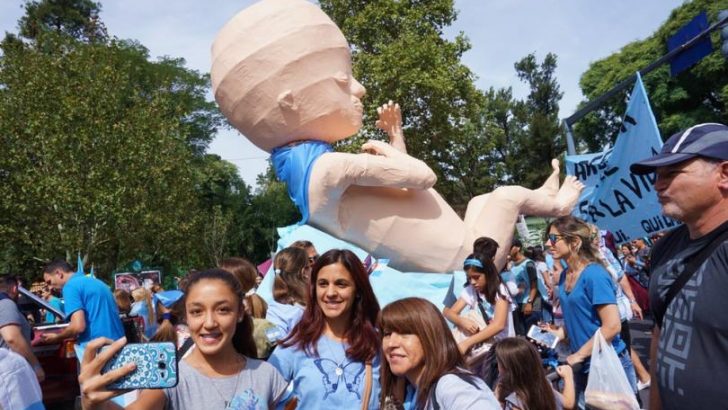Nearly two million people marched on Saturday last in Pope Francis’s native land of Argentina in pro-life demonstrations dedicated to defending the life of the unborn, and offering solutions to mothers in crisis pregnancies.
The rally was organised by Argentina’s March for Life, a lay-led organisation. Although Catholic bishops, evangelical pastors, and Jewish and Islamic leaders participated, they were not involved in the organisation of the March 23 event, which took place in more than 200 locations across the country.
The movement doesn’t have a political affiliation, either. In fact, the only political message issued from the stage was a warning to Argentine politicians: abortion will be an issue in the upcoming presidential elections, and those who were out in the streets won’t vote for candidates who support overturning Argentina’s pro-life laws.
Buenos Aires drew the largest crowd, with more than 300,000 people marching across the capital. Aerial footage showed that at one point, the column of people was more than one mile long.
Though the rally had been planned well in advance, the city government provided no security for the event, and neither did the national government.
The city of Buenos Aires is governed by Horacio Larreta, who belongs to the party of President Mauricio Macri, who last year allowed Congress to debate the legalisation of abortion for the first time in a decade.
According to Carolina Brown, one of the organisers of Saturday’s rally, there was a “palpable spirit of celebration, of joy, with families rallying together, as well as an overwhelming presence of young people”.
The latter, she said, wasn’t the case last year, but “seeing that young people are the ones who will have to continue fighting, seeing them come out in numbers, joining friends, is a reason for hope”.
Support
During ‘march season’, Ms Brown has a key role: making sure that the people in the street find out about the event, as they have little support from Argentina’s major media outlets, and not everyone has access to social media.
In different shapes and forms, the rally has been taking place every year since 1998, when the country declared March 25 to be the Day of the Unborn Child, but the participation and visibility has grown exponentially in the past two years, after the strong effort to legalise abortion.
Abortion today is illegal in Argentina, though there’s a protocol adopted by some states that allows for the practice when the pregnancy is the result of rape, or the life of the mother is at risk.



